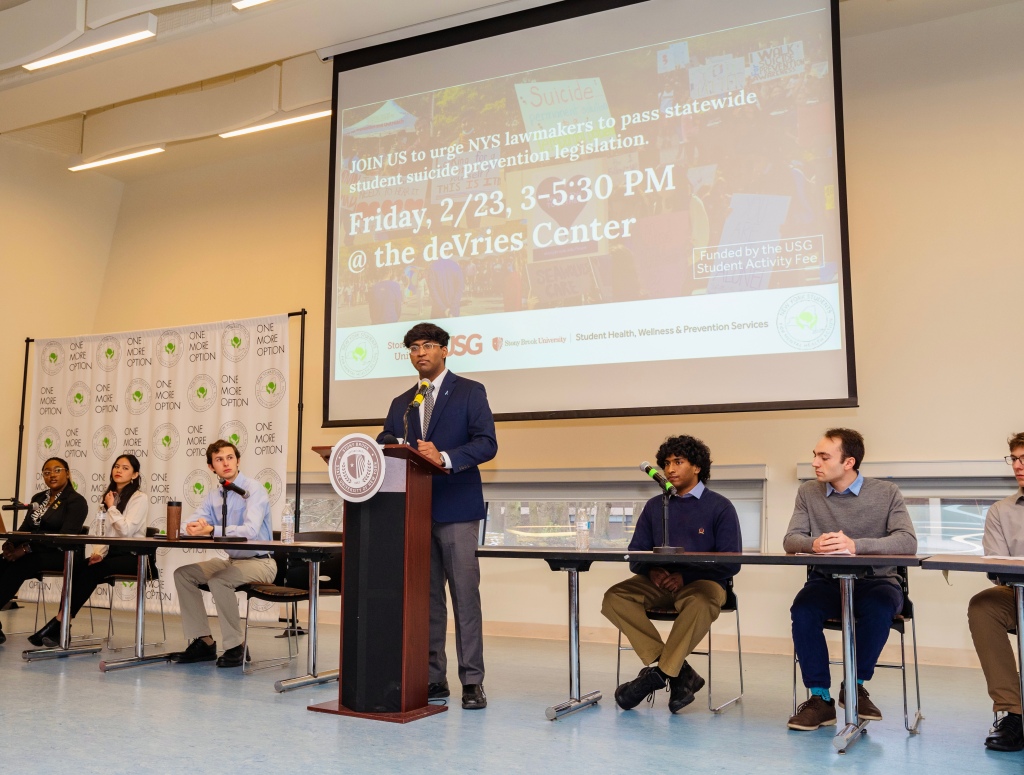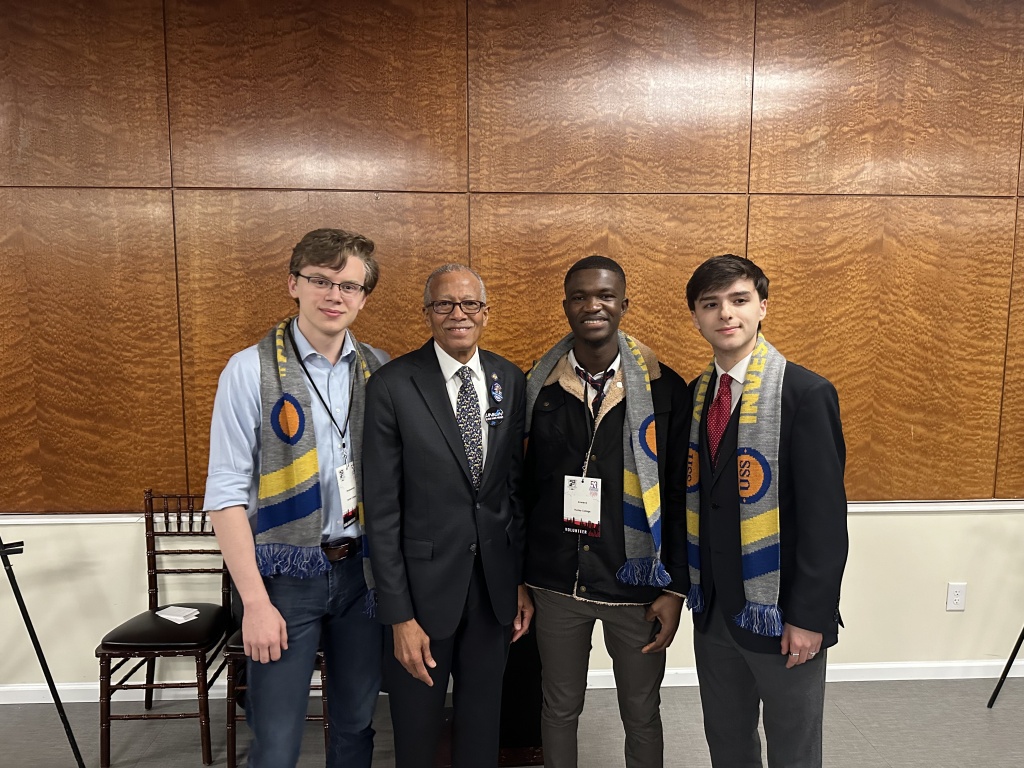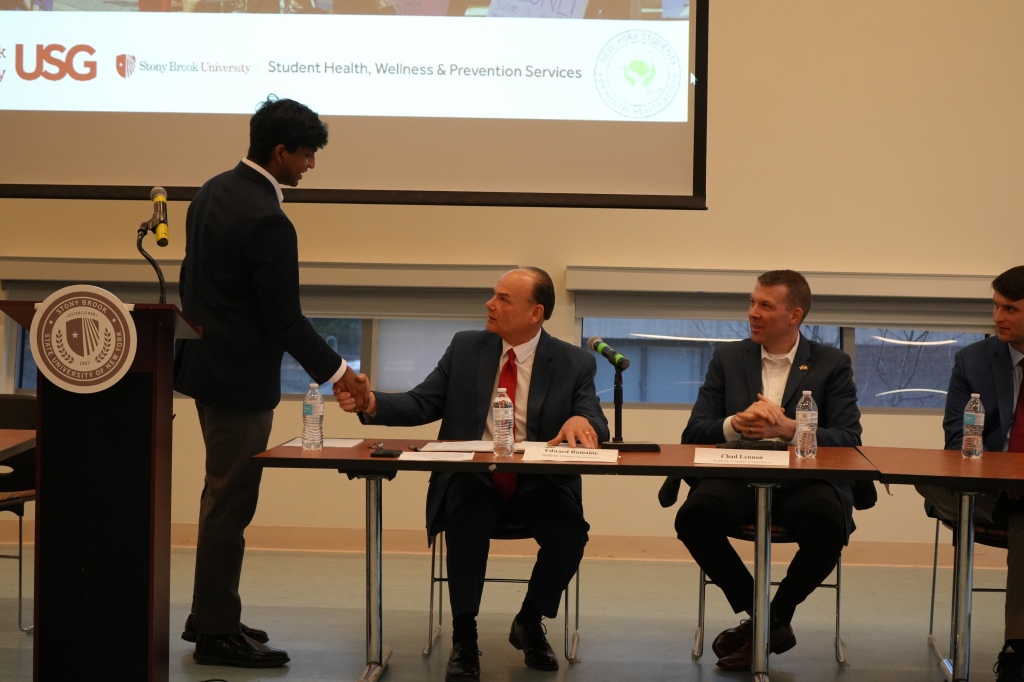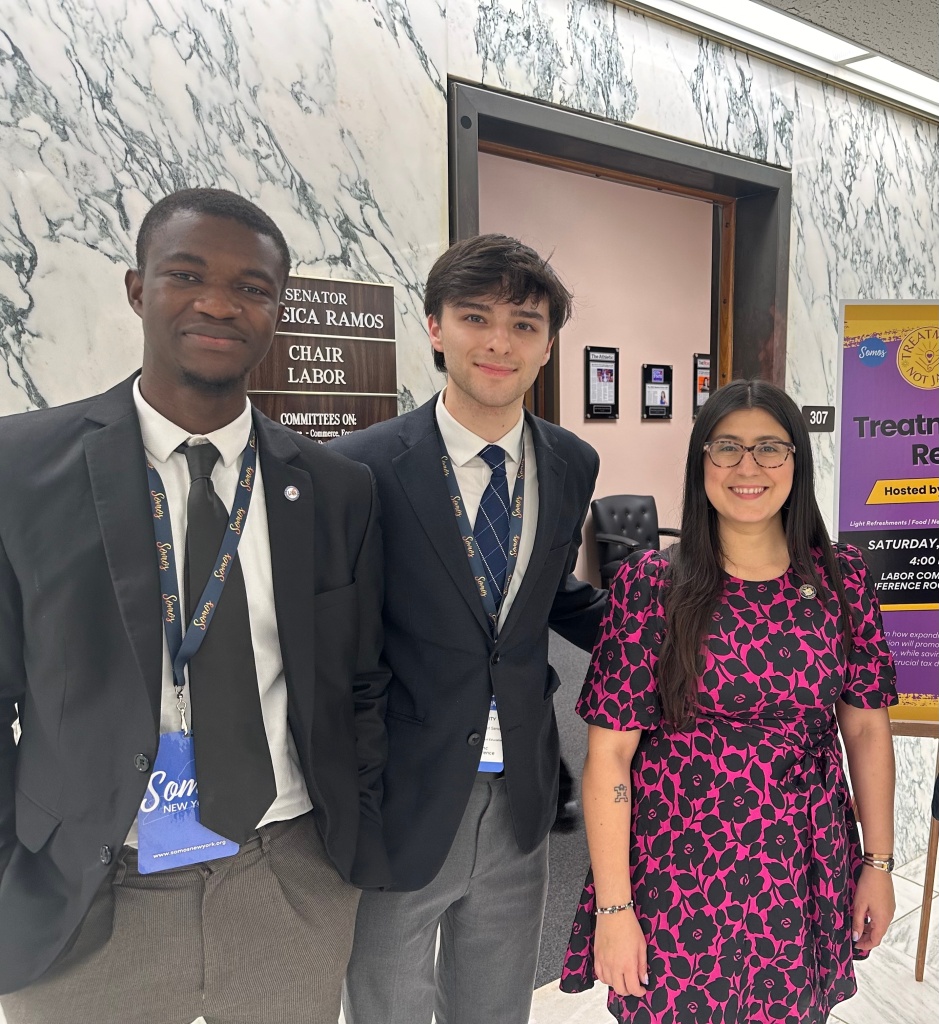By: Aarsh Chauhan & JK Rajjo

Hunter’s Undergraduate Student Government (USG) has become the first CUNY to join a coalition of over 50 collegiate student governments across New York State to support the passage of the College Student Suicide Prevention Act (CSSPA).
Supported conceptually by nearly 30 lawmakers in the State Assembly and State Senate, the CSSPA would require colleges and universities to develop suicide prevention and intervention policies for enrolled students who seek additional mental health support on campuses. The legislative proposal bases itself off the Student Suicide Prevention Act (SSPA), a proposed state bill carrying a similar goal of requiring suicide prevention measures for students, but limiting its scope to K-12 schools.
The legislation, which will likely be co-sponsored by state Sen. Lea Webb (D-Binghamton) and Assemblymember Patricia Fahy (D-Albany), was proposed by the New York Students for Mental Health Action (NYSMHA) Coalition. Hunter became the first CUNY institution and second college in New York state to join the NYSHMA Coalition in Oct. 2023, under the leadership of USG President Bashir Juwara and External Affairs Commissioner Daniel Cronin, who recall their recent efforts to build support for the bill in legislative chambers in Albany in an interview with The Envoy.

“The main issue seems to be outreach. A lot of them [policy makers] aren’t familiar with the initial bill [SSPA], or this new proposal.” Cronin said. “So once we were able to sit down and talk to them, they were really supportive, and they were glad to get behind it.”
These policies include, but are not limited to, posting information about common mental health conditions affecting students and available support resources in student handbooks, orientation seminars, and college websites, forming partnerships with off-campus community mental health providers to refer students to and securing places in campuses that may be especially vulnerable to suicide attempts.
“Every student deserves the right to have access to strong intervention strategies and safety nets that can serve them adequately in a time of need,” said Vignesh Subramanian, head of the NYSHMA Coalition, to The Envoy.
Subramanian, a student at SUNY Stony Brook, said he decided to pitch the need for a bill to Stony Brook’s student government last September after hearing about constraints faced by students seeking professional help from the university’s counseling services. He would eventually discover that inaccessibility to mental health professionals was an issue that extended itself across many more New York state public colleges.
New York does not fall among 21 states – including its neighbors New Jersey and Pennsylvania – that have mandated suicide prevention and intervention measures in educational institutions, according to the American Foundation for Suicide Prevention.
“We are a state that a lot of people consider really progressive in terms of how safety nets were developed for people, especially young people,” Subramanian said. “But it’s surprising that we’re kind of a laggard in this area in preparing colleges deal with students who have expressed suicidal ideation.”

Besides endorsing suicide prevention and intervention measures on campuses for students aged 18-24, the CSSPA would require campus public safety officers and Resident Advisors (RAs) to be QPR (Question, Persuade and Refer) trained to assist students during active suicide crisis using safe de-escalation methods. The training program is an almost 2 hour course that would teach participants how to question someone’s suicidal intent, persuade them to seek help, and refer them to appropriate mental health resources.
As the closure of Brookdale approaches and the relocation of its student residents nears, Juwara believes that expanding the scope of bill to CUNY’s dormitory system is a critical measure.
“We know that there will be a lot of stress on students. So, requiring RAs (resident advisers) to have suicide prevention training is really significant,” Juwara said. “And also having the referrals, CUNY working with outside organizations that students will have connections with.”
In addition, the proposal also aims to provide mental health services to students of graduate schools without any barriers, as well as revising leave-of-absence policies to no longer force students struggling with mental health to withdraw.
“We included provisions that would basically prohibit colleges and universities in New York state from forcing students who express thoughts of suicide into involuntary withdrawal,” said Subramanian while reflecting on a 2018 incident at Yale University where a student was expelled after approaching counseling services for depression.
NYSHMA did not originally intend to introduce the CSSPA as its own legislation. In fall 2023, the coalition initially advocated adding amendments that would include college students to the SSPA.
Subramanian said that Juwara joined him on Jan. 5 alongside other New York student leaders to officially propose the amendment to Brad Hoylman-Sigal, the state Senate sponsor of the SSPA. During the meeting, Juwara said he was moved by a student from Brooklyn College who shared about losing a close friend due to suicide, which he thought was “powerful.”
Ultimately, the amendments successfully garnered conceptual support from over two dozen lawmakers, including a majority of Higher Education Committee members. However, they were not ultimately incorporated into the bill.
The amendment allegedly met resistance from some policymakers such as 69th District Assemblymember Daniel O’Donnell whose agreement was vital to the bill being amended as the SSPA Assembly sponsor.
O’Donnell shares a history of backing and introducing progressive initiatives including the Marriage Equality Act of 2007, and Dignity for Students Act, which led the state’s public school system to develop tactics against bullying and harassment.
Subramanian recalls that although the Assemblymember initially decided to back the bill and review details for discrepancies, his office did not follow up with Sen. Hoylman-Sigal’s team for around five weeks, and eventually pulled back their support for the amendment in mid-February.
A spokesperson for O’Donnell’s office told The Envoy that they are unable to give a comment at this time. O’Donnell announced his decision to not seek reelection last November, which Subramanian attributes as the likely cause for revoking his support, suggesting that he may have not been interested in any new legislation such as the amendment. The coalition does not have a definitive answer, however.
“It was disappointing to hear but at the same time, the support that we received from Senator Holyman was really encouraging,” said Juwara about the amendment not being passed.
Nevertheless, Subramanian shifted gears. NYSHMA decided that rather than amending the existing proposed bill, they would create an entirely separate one called the CSSPA.
While the coalition remains in good standing with Hoylman-Sigal, they seek to have the new bill sponsored by Sen. Webb and Assemblymember Fahy due to their positions in the Senate Higher Education Committee and the Assembly Higher Education Committee, respectively. Subramanian says that Webb was also motivated to join the cause after a campus incident, allegedly suicide-related, occurred in her district last fall.
Students at publicly funded universities such as CUNY in particular find themselves vulnerable to mental health challenges. For instance, data suggests that more than half of students across CUNY recounted facing symptoms of either anxiety or depression.
It is this scenario that pushed student leaders such as Juwara and Cronin to join Subramanian’s coalition and push it on the floor of Hunter’s Student Senate. For Hunter’s student body of 22,879, they have around seven counselors as of 2022.
The staggeringly low number of counselors available at Hunter reflects an overall declining ratio experienced by CUNY institutions. The ratio for counselors at CUNY stayed at 1 per 2700 students, standing below the national standard of 1 per 1000 students recommended by The International Accreditation of Counseling Services, according to data released by CUNY Rising Alliance in 2022. This shortage in counselors comes amidst the $5 million donation CUNY received in 2020 through the CARES Act to widen mental health services on campuses.
Throughout this legislative process, Subramanian hailed Hunter as NYSHMA’s “strongest ally in CUNY, and possibly statewide” due to the intense level of advocacy work done by USG both in New York City and in Albany.

Cronin, Bashir and Subramanian say that students can support the CSSPA by attending public events hosted by the coalition such as rallies. Bashir and Cronin alongside other Hunter USG members plan to speak at an upcoming CSSPA rally in Washington Square Park hosted by NYU, who is a part of the coalition. The event will take place on May 2, at 6:30 p.m.
“We want to hear from students, we want to know what we can do to make their college experience better,” Cronin said. “And if there’s something we can do, we will absolutely try.”
The bill will be officially introduced to the NY Senate floor in the coming weeks. While the legislative session ends in June, leaving little time to have the bill enacted into law this year, Cronin and Subramanian say they hope to get “as much committee votes and progress on paper as possible.”
For the advocates of the CSSPA, their efforts to advance this piece of legislation is more than a matter of getting their voices heard.
“This bill can make a very meaningful difference in the next year,” Subramanian said. “It could save a life, even thousands of lives over the next decade.”
Nikole Rajgor contributed to the reporting of this article.

Leave a Reply